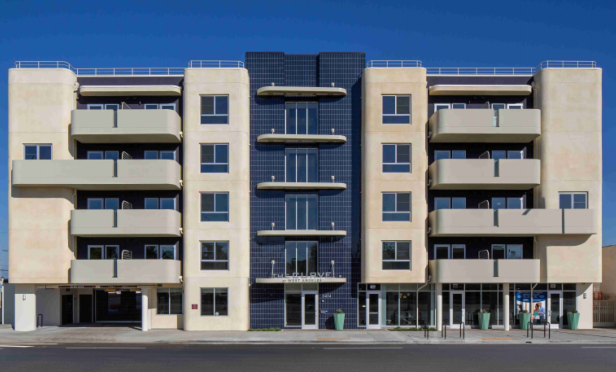 The Curve, one of R.D. Olson's latest projects
The Curve, one of R.D. Olson's latest projects
The hotel industry is among the most impacted by the coronavirus pandemic, and hotel developers have had to quickly respond to the vastly different marketplace. For those developers with ongoing construction projects, that has meant pivoting to new health and safety guidelines on job sites, investing in protective gear and adjusting project timelines due to materials shortages. Developers with future projects, on the other hand, have stepped back.
"The direct impact of the coronavirus pandemic for new hotel construction will be the shift in project completion timelines," Bill Wilhelm, president of R.D. Olson Construction, tells GlobeSt.com. "Although, the delay times will vary and depend on the status of each project prior to the outbreak. This leaves many hotel builders and developers planning and strategizing how they can make up for this time and prevent future delays post-COVID-19."
R.D. Olson—both an owner and contractor for hotels—has focused on implementing new health guidelines on its construction sites. "We are committed to practicing safety measures as recommended by these agencies and have made modifications to ensure that we're adhering to social distancing policies at all of our project sites," says Wilhelm. "We're also taking preventative actions such as hand washing and requiring employees and subcontractors to stay at home if they are ill."
In addition to coping with health and safety guidelines set out by the Centers for Disease and Control and Prevention and the Occupational Safety and Health Administration, hotel projects have experienced challenges getting materials. "New hotel projects under construction also are faced with the challenge of material shortages," says Wilhelm. "With overseas shipping delays and local manufactures shut down or overwhelmed due to COVID-19, hotel builders are having to find alternate solutions for construction resources. Another key challenge impacting active hotel projects, is navigating how to host site inspections with local cities while practicing social distancing. While these are not the most ideal or time efficient options, for many of our jobs, we've been able to facilitate virtual inspections or shift walk-throughs with city agencies to early mornings when construction personnel are not on site."
Developers that have not broken ground yet—even with projects in pre construction—have pressed pause. In some ways, this is a response to the new market conditions and rampant uncertainty, but in other ways, it is also a matter of capability. "Planning checking and inspections may be stalled or temporarily shut down as city agencies work to find remote solutions or hold until they can better service project needs," says Wilhelm. "Also, with many architects currently working remotely, we may see a shift or delay in architecture and design planning and execution for projects across various property types."
Stalled capital markets are also playing a role in developers' ability to continue on with construction. "Banks and lenders may necessitate a different set of terms or have changed their loan-to-value ratios compared to pre-coronavirus," says Wilhelm. "We will also see lending institutions slow the process of pay requests for projects with active funds and loans that may have been approved resulting from further documentation requirements."
Mostly, however, stalled projects are a way to protect the current portfolio and help to hedge against the incoming downturn. "For future projects, we will see a larger impact on specific industries, such as retail and hospitality," says Wilhelm. "Investors in these property types who have a heavy portfolio and those protecting existing projects may be more inclined to put new and projected developments on hold indefinitely."
Indefinitely, however, doesn't mean forever. "Future developments, depending on property and market type, can come to fruition," says Wilhelm. "There are still a lot of moving parts that will continue to influence construction and development over the next 12-18 months."
© 2025 ALM Global, LLC, All Rights Reserved. Request academic re-use from www.copyright.com. All other uses, submit a request to [email protected]. For more information visit Asset & Logo Licensing.







